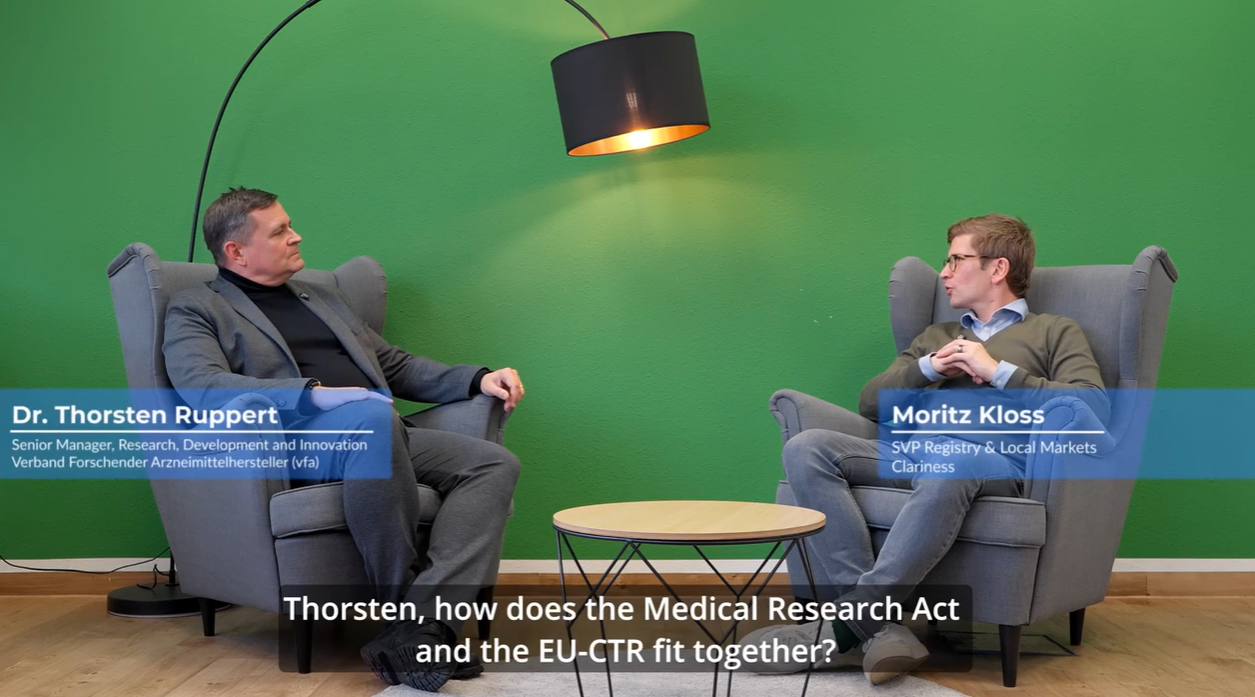What do patients want from a clinical trial?

Many sponsors and investigators are looking to patient-centricity to design more effective clinical trials. This came across clearly in our recent research, identifying the recruitment support needs of clinical trial stakeholders. Indeed, among industry respondents, the top-rated cost-effective patient recruitment strategy is patient-centric design.
A patient-centric approach is not limited to identifying the target patient population or developing a digital mechanism to locate and enroll patients who fit the profile; it is about considering the patient perspective at each step of the study. So, when creating patient recruitment strategies for clinical trials, biopharma must ask two questions:
- Once you reach your target patient, how do you build and keep their interest in participating in a clinical trial? Patients seeking new treatments want to be informed about opportunities to take part in clinical studies. However, they also have multiple concerns about clinical trial participation, which can create barriers to efficient recruitment. It’s important that sponsors and researchers ask this question to uncover and address these multiple patient concerns.
- Once patients are enrolled in the trial, how do you ensure they stay enrolled until the end of the study? Patient dropout rates can be high and the reasons for dropping out can be varied. It is critical to answer this question to understand the factors that could lead to dropout and determine how to mitigate the impact of attrition.
The answers to these two questions may take on different forms, but they will point towards a similar theme of identifying, understanding and holistically addressing the wants and needs of patients during clinical trials.
So, what do patients want from clinical trials?
Based on our 14 years of experience working with clients and our clinical research network, patient needs can be categorized into three key areas – informational, relational and logistical.
#1 The need for information
This refers to the patients’ need to be informed about the study, what is expected of them for the duration of the study, and any personal gains from clinical trial participation. The amount of information and how it is communicated to potential recruits can be powerful incentives for patient enrollment.
The following questions will help you ensure these informational needs are met:
- What are the medical risks associated with clinical trial participation?
- Does the treatment under investigation have a sufficient safety and efficacy profile?
- How does the clinical burden of the clinical trial compare to a currently used treatment or to the standard of care?
- How will personal data be managed?
- How will a participant’s personal life be affected?
- Have these questions been answered using language that is understandable to the participant?
Patients want to know the answers to these questions. Not only does transparency empower patients to make an informed decision about their participation, but it also starts to address another need – the need for a trusted relationship throughout the duration of the trial.
#2 The need for a trusted relationship
This patient need is about showing sensitivity to the patient’s emotional and psychological needs. It refers to the desire of patients to be treated as individuals, not as numbers in a study. They want to see drug makers and researchers demonstrating that participants are valued as people, not just participants – and, of course, that their role as a participant is also valued.
A pertinent issue relating to this is how so many clinical trials involve a complicated informed consent process. Gaining informed consent is a critical first step to ensuring the patient is made fully aware of the study and is empowered to take part in the trial. From the point of consent, the quality of the patient experience throughout the trial is largely determined by how site staff interact and listen to the concerns of participants. Participants are unlikely to gain trust in these staff if they are administering complex consent processes shrouded in information about a complex study design.
The following questions will help you ensure the need for a trusted relationship is met:
- Is the patient recruitment process free of confusion?
- Is there some way to simplify the informed consent process?
- Do the staff interacting with patients have strong people skills?
- Are the investigators making the experience easy for the patient?
- Who can patients turn to when they have questions during the clinical trial?
During clinical trial recruitment and before the clinical trial even starts, provide patients with the reassurance of a point of contact should they need it.
#3 The need for logistical support
Logistics is an important aspect of the recruitment strategy. If it is not considered adequately and at the outset, it could become a barrier to patient recruitment and retention. For example, the location of clinical research sites may not be ideal for certain patients, or the patients’ age or condition might make it difficult for them to travel and move around. Logistical support can be crucial in the incentivization of participants and for smooth engagement, reporting, and consistent participation.
The questions that must be considered here include:
- How long will each visit to the site last?
- What activities and tests are involved in each visit?
- Does the carer/family member have a role?
- How can the carer/family member be informed about the requirements of participation?
- What transportation assistance is available?
- Are there options available to take part in the study at home or conduct visits online?
These are only a few of the questions that can aid the assessment of patient needs in trials. Addressing the right questions appropriately will require a deep understanding of the patient voice.
The importance of the patient voice
In our recent survey, investigators cite understanding the patient perspective as an important component of improving patient enrollment. We agree. The skill of tuning into the patient voice and drawing insights from it is integral to the formulization of a rigorous recruitment and retention strategy. However, it is not easy to tap into the patient voice. Some research organizations and pharma companies have even gone as far as acquiring clinical research sites to gain a better and exclusive understanding of the patient experience during clinical studies.
Actively seeking to understand the patient voice is also important because it can be easy for sponsors and investigators to lose track of it. Take increasingly complex protocols as an example. At times, the protocol can be so complex that the focus of the study becomes fuzzy; the importance placed on creating the patient profile, the clinical suitability of the target population, and scientific rigor begins to outweigh the importance placed on feasibility. The result is clinical studies that have an impressive protocol, but the number of patients enrolled or retained is minimal to zero. Indeed, we believe that many clinical studies fail due to the research focus being more on the big picture of defining the target patient population and less on the individual patient as a person. It is not surprising that protocol complexity is one of the biggest challenges that pharmaceutical companies and researchers deal with during clinical trials. However, having a good grasp of the patient voice can illuminate the path for companies regarding how to attract and retain patients in trials struggling with protocol complexity.
We understand the problem of capturing the patient voice because we see it in many research organizations we have worked with, including multinational companies. This is the reason we hold an annual Patient’s Voice Conference, where we aim to establish a platform for sponsors and researchers to hear from and interact directly with patients. The conference is a free event intended for clinical researchers in protocol development, patient recruitment, and retention. During the event, we discuss patient-centric design, show examples of patient-friendly protocols, and examine how industry can comprehensively consider the impact of clinical trials on patients. We have held three such conferences to date, and the level of attendance by industry and patients has been high each year. This indicates how challenging it is for patients to be heard and for industry to listen.
We have seen how a deep understanding of what patients want and need from clinical trials leads to timely and successful trials. It informs a patient-centric trial design, a marketing strategy to reach potential recruits, smooth enrollment, and an engaging trial experience. Tuning into the patient voice and holistically addressing patient needs during trials requires creative workflows and project management approaches proven to be effective.
Want to know how we can support your patient recruitment?
Simply get in touch with one of our experts, and we will review your study’s requirements, and develop a strategy to enroll more patients.
Insights and recourses



